People are starving for unity.
Long ago, that came by way of our political leaders, often peaking during times of crisis or triumph. 9/11 gave us hints of it for a hot minute. Then, campaign slogans about hope, change, and making the country great again came along. Those might seem like rallying cries on their face, but they also inferred that the people who were happy or prosperous in the moment were doing it wrong. Protectionism spurred more division.
Alas, it might be beyond America’s DNA to intellectualize that success is not zero-sum.
For generations, media played a unifying role. Around radios in the ‘30s and televisions in the ‘50s, Americans huddled. Aided by limited options, TV created the tentpoles, homogenizing the country not only during primetime, but at the water cooler the next day. From M*A*S*H in the ‘70s to Must See TV in the ‘80s to Seinfeld in the ‘90s, people coalesced. American Idol was the last of that dying breed.
I don’t need to tell you it all changed or to enumerate the reasons why. Media fragmentation may have initially exacerbated our political divisions, but today it’s a flywheel, as our cultural fissures spawn more and more tribalized media. And so on.
In March, the percentage of Americans who say they watch cable news reached its lowest point since we began tracking it in 2009 (and presumably long before that). For sure, streaming has a lot of blood on its hands. And, you could reasonably argue that people wandering from a limited bulge-bracket of outlets into the wilderness of the Internet yields even more fragmentation. I believe something else is happening.
As our data and Gallup’s have recently shown, the population of Americans who identify as politically Independent is at unprecedented heights. “Independence” suggests that people aren’t running toward something, rather, running away from something else. And that “something else,” in my not so humble opinion, isn’t a two-party system (although that’s part of it), but a feeling – of hostility, of being forced to pick sides, of loneliness.
I’ve bludgeoned the well-being drum this year (as I said I would), like the tribalism drum for five years before it. Now, we’re seeing how closely those things are related.
The way the presidential election is shaping up, I doubt there’s a light at the end of the tunnel anytime soon.
But I can hope.
Here’s what we’re seeing:
One way people will get away from our country’s current discord is to actually get away from our country. I was in the camp of people who thought we saw peak COVID revenge travel in 2022, as I watched so many of my friends on Facebook take their families overseas. However, if our data is any indication, international travel this year is showing no signs of slowing. Another big trend we saw in this travel report is the prevalence of solo journeys. Over one in three expected travelers over the next 12 months plan to take at least one trip by their lonesome. They’re more likely to be younger and more likely to be men.
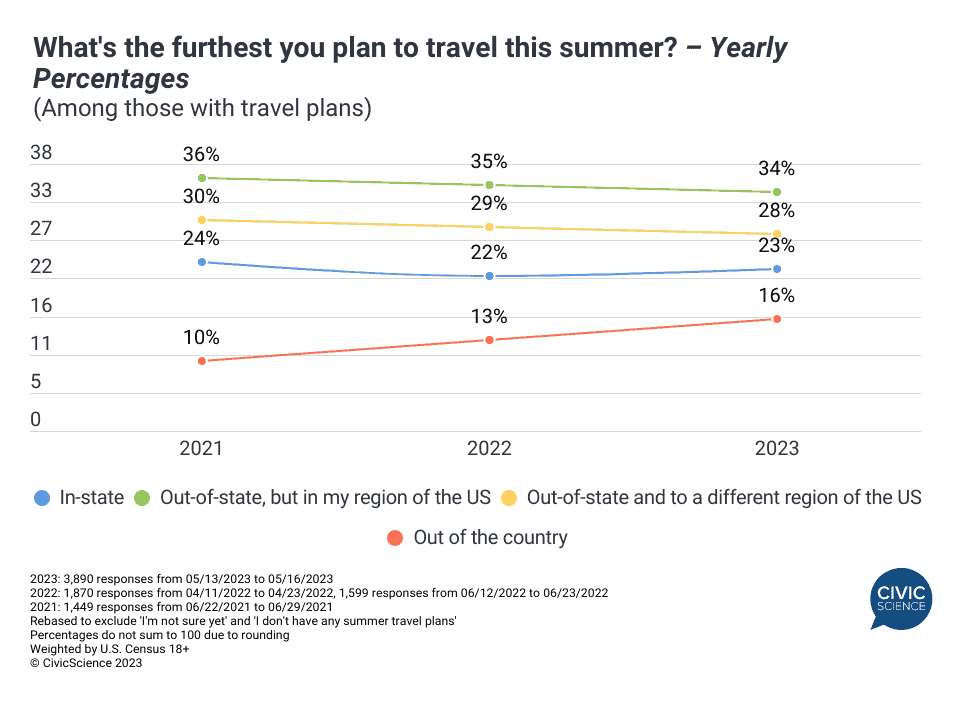
“ChatGPT: Write a PR campaign that will make people less freaked out about ChatGPT.” Proponents of generative AI are losing the public perception battle, as concerns over ChatGPT and the like have increased markedly over the past month. People in service jobs, management roles, and operations are the most worried, while people in computer and technical roles are the least. Concerns surged particularly among Democrats, nearly equaling that of Republicans, and shrinking a much bigger gap we saw in April. We need more positive, non-trivial stories about this technology in the mainstream.
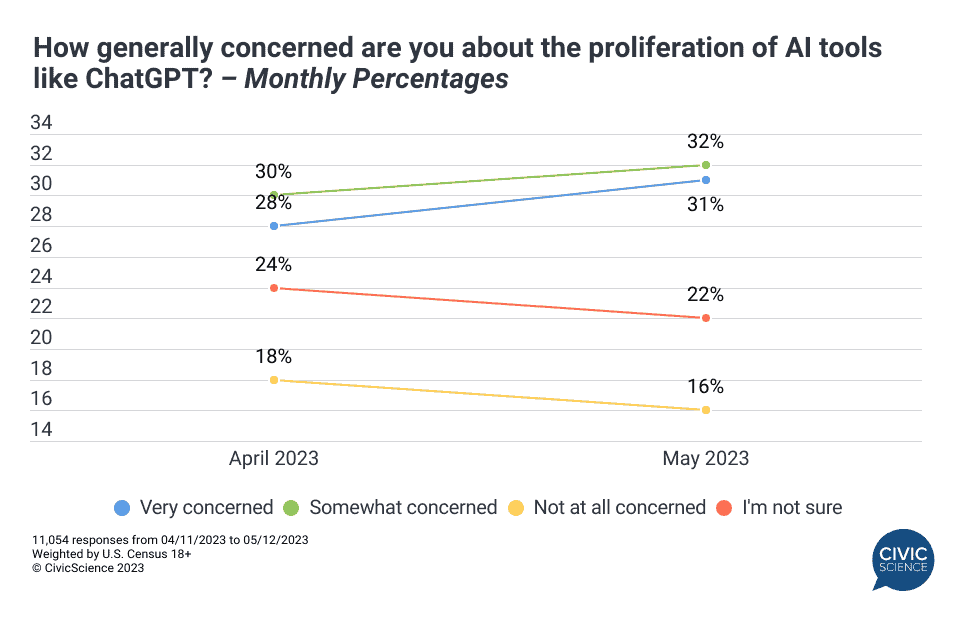
Republicans support Biden. Ok, they at least support his call for stricter asylum-seeking rules for immigrants, outnumbering Dems 71% to 58%. In our 3 Things to Know this week, we delved into the partisan divides on immigration policy, as well as public opinion about the growing prevalence of facial recognition technology. Gen Z is the only age group where a plurality (by over 2:1) believe the tech will have a net positive impact on society. Gen Xers, by far, are the most likely to believe facial recognition will be harmful. Lastly, we looked at the potential interest in Amazon’s new get-a-$10-rebate-if-you-pick-up-your-order program.
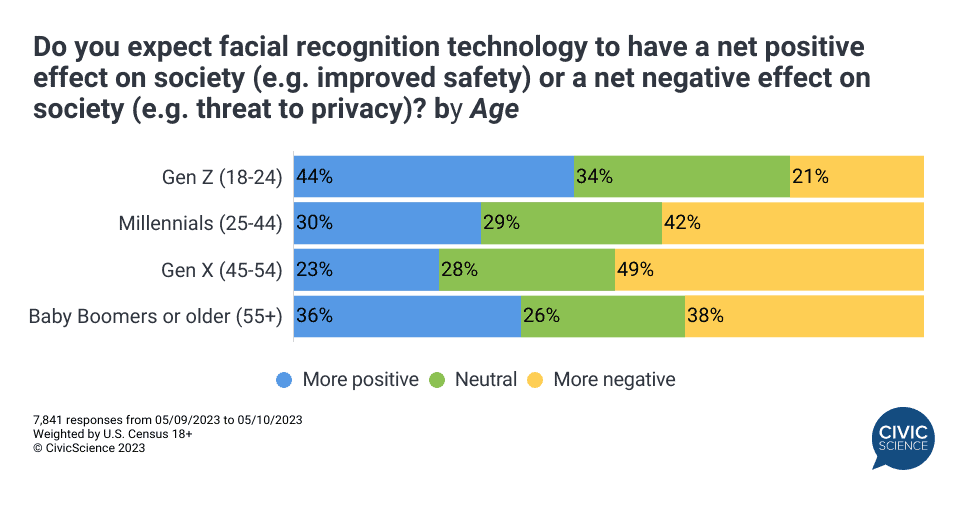
People really procrastinate when it comes to preparing a will. In a new area of study for us, we’ve begun exploring the state of “last” and “living” wills among U.S. adults. The rate of adoption is fairly similar between the two, with 38% of Americans saying they have a last will and 34% saying they have a living will. An equal 12% say they have no intention of ever getting one/either. There’s a high correlation between having life insurance and having a will, which seem to both be proxies for “being prepared.” That said, while 88% of Americans say they do or plan to one day have a last will, just 61% of adults over the age of 65 actually do. What is everyone waiting for? Don’t leave a mess for your next of kin.
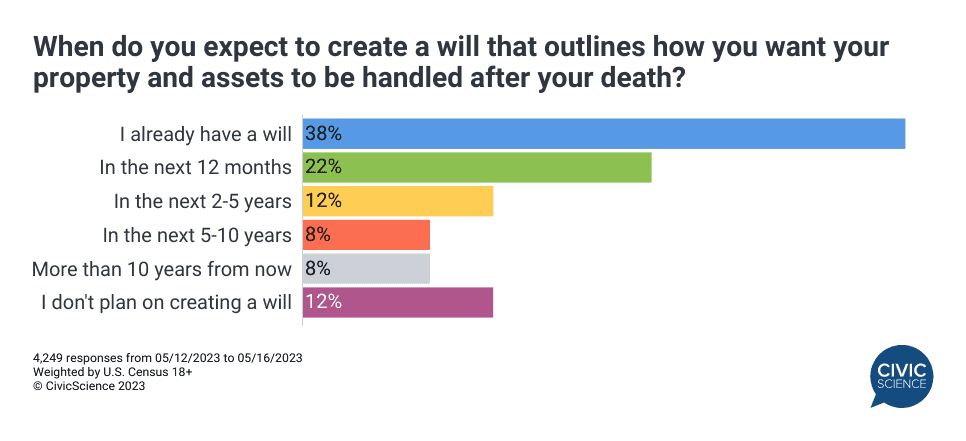
Increased crime (or at least the perception of increased crime) is impacting retail. I mentioned this in my prologue last week and here’s some of the data to prove I wasn’t just making shit up. Rising concerns about crime and violence in local communities is causing some consumers to shift more of their shopping away from physical stores and toward e-comm – especially in urban areas. Of course, it’s affecting different retail categories and even brands differently, but you’ll have to reach out to me for that data. It’s too valuable for broadcast.
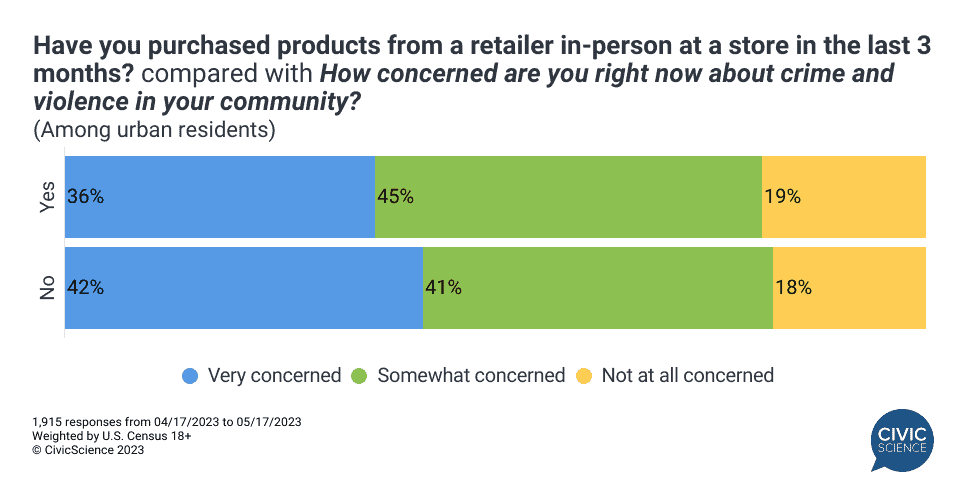
More awesomeness from the InsightStore™:
- The correlation between skincare and emotional well-being is crazy;
- We examined the key psychographic differences between CVS and Walgreens shoppers in our latest 360 Report;
- Our biggest takeaways about the state of women’s health today (they’re struggling more than men, but also way more conscientious);
- The dominance of McDonald’s in the QSR French Fry Wars is staggering (except among curly fry fans);
- Non-alcoholic beverage drinkers are way more likely to visit national parks and 4 other fascinating factoids.
This week’s most popular questions:
- How comfortable would you be saying “no” to your boss in order to set a boundary?
- Have you ever worked for a bad boss?
- To what extent do you believe in miracles?
- How favorable or unfavorable is your opinion of the generation after yours?
- Would you say you are more or less patient than the average person?
- Have you ever had a premonition that something bad was going to happen?
Answer Key: Don’t know, never had one; See above; I don’t; Let’s just say my favorability skipped a generation; Much less; See above re: miracles.
Hoping you’re well.
JD
Not on the list for John’s weekly What We’re Seeing? Sign up here. If you are new to this list, check out our Top Ten to get caught up.








